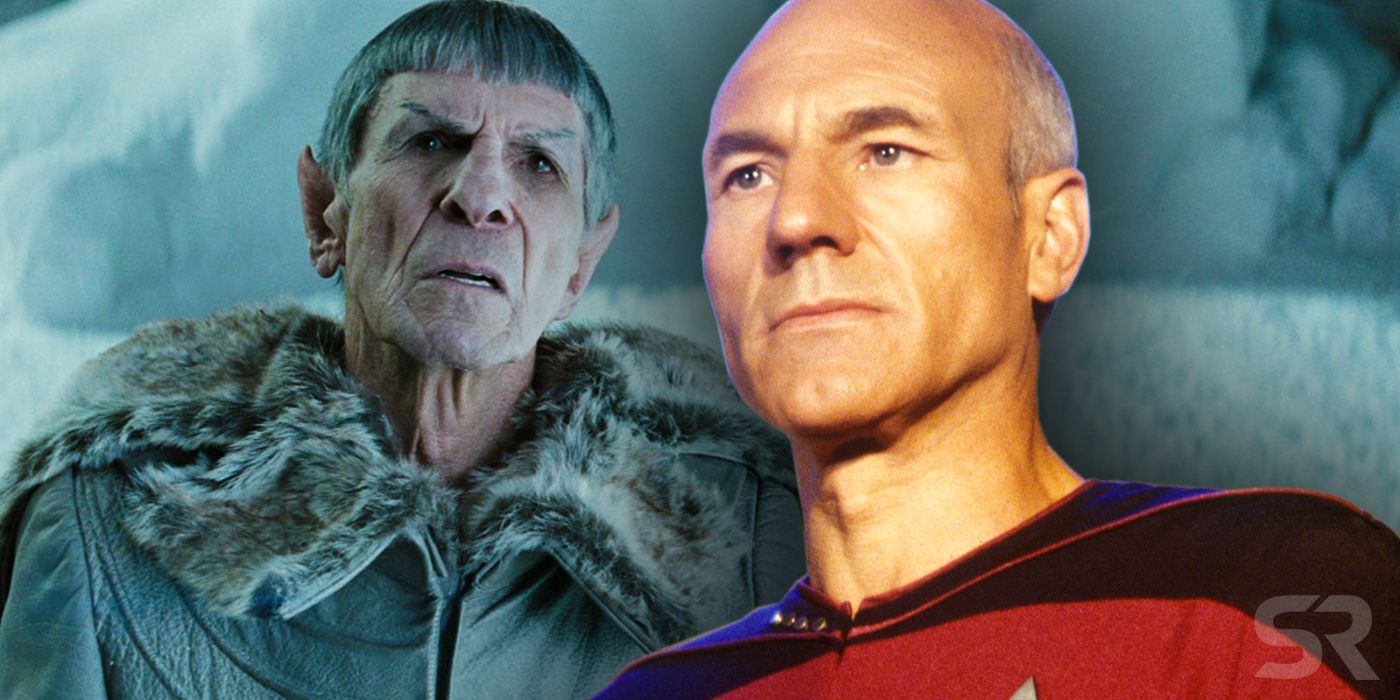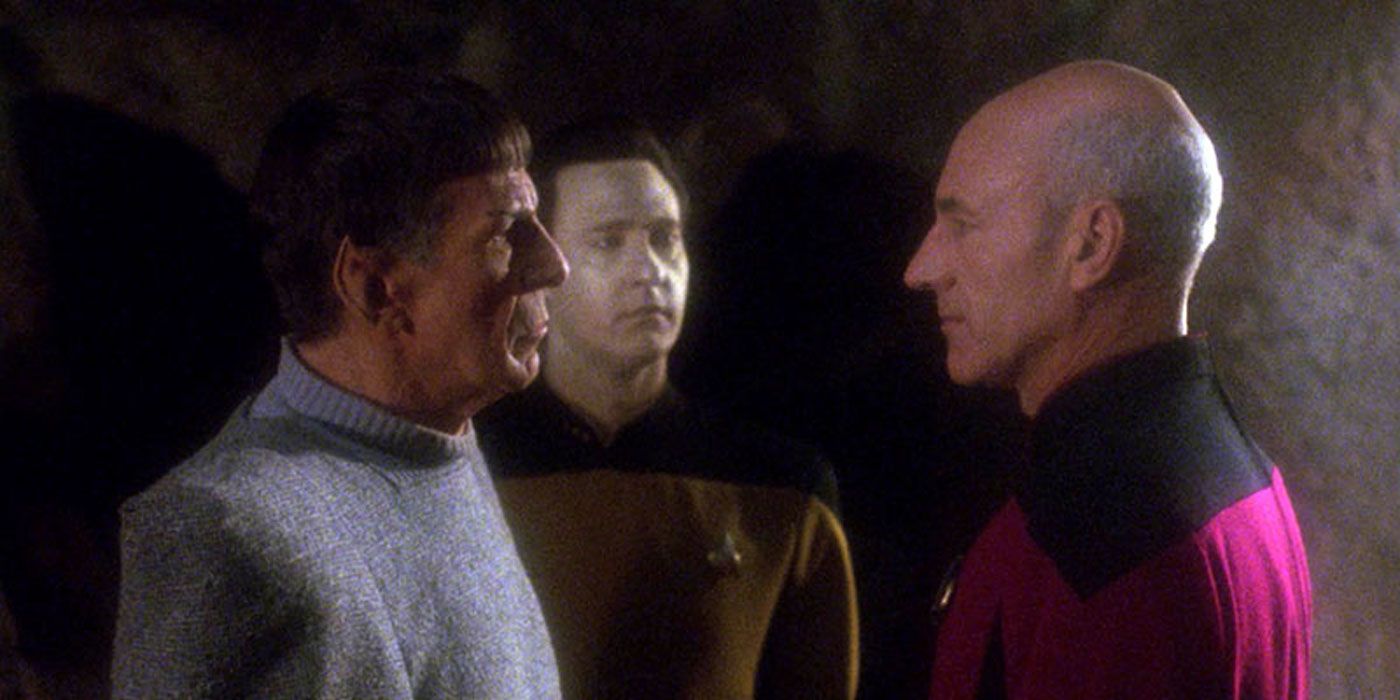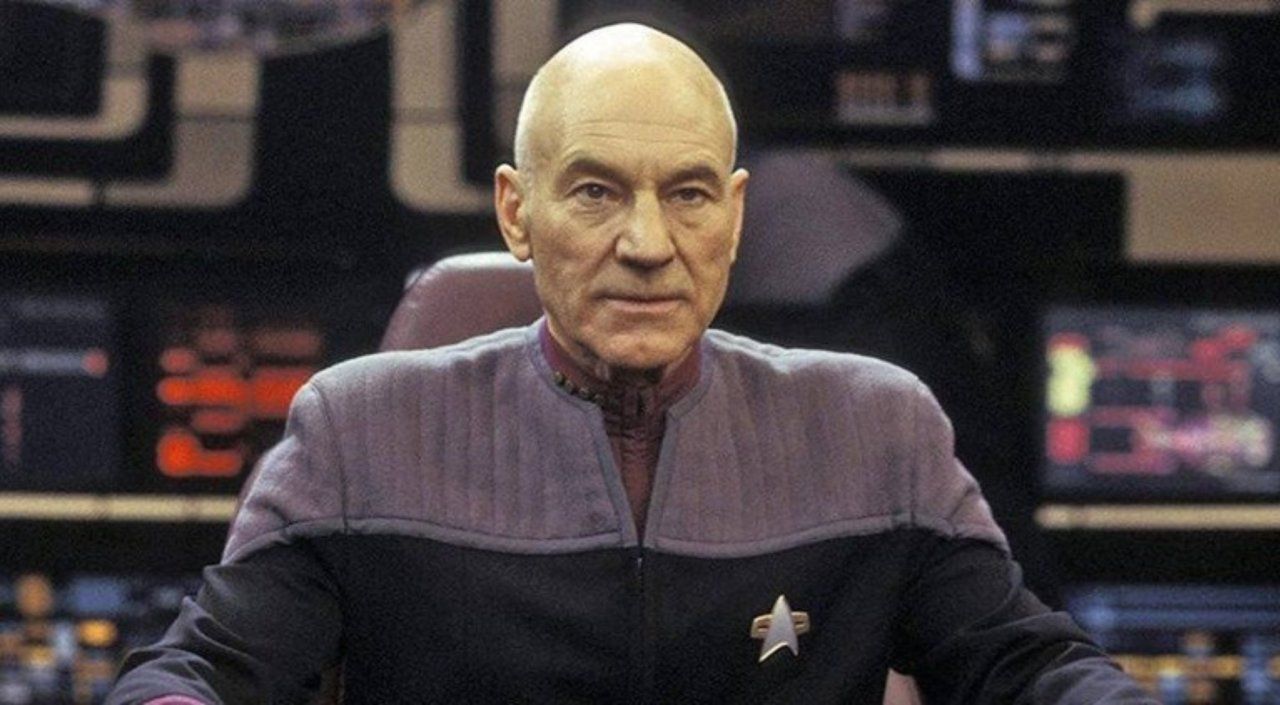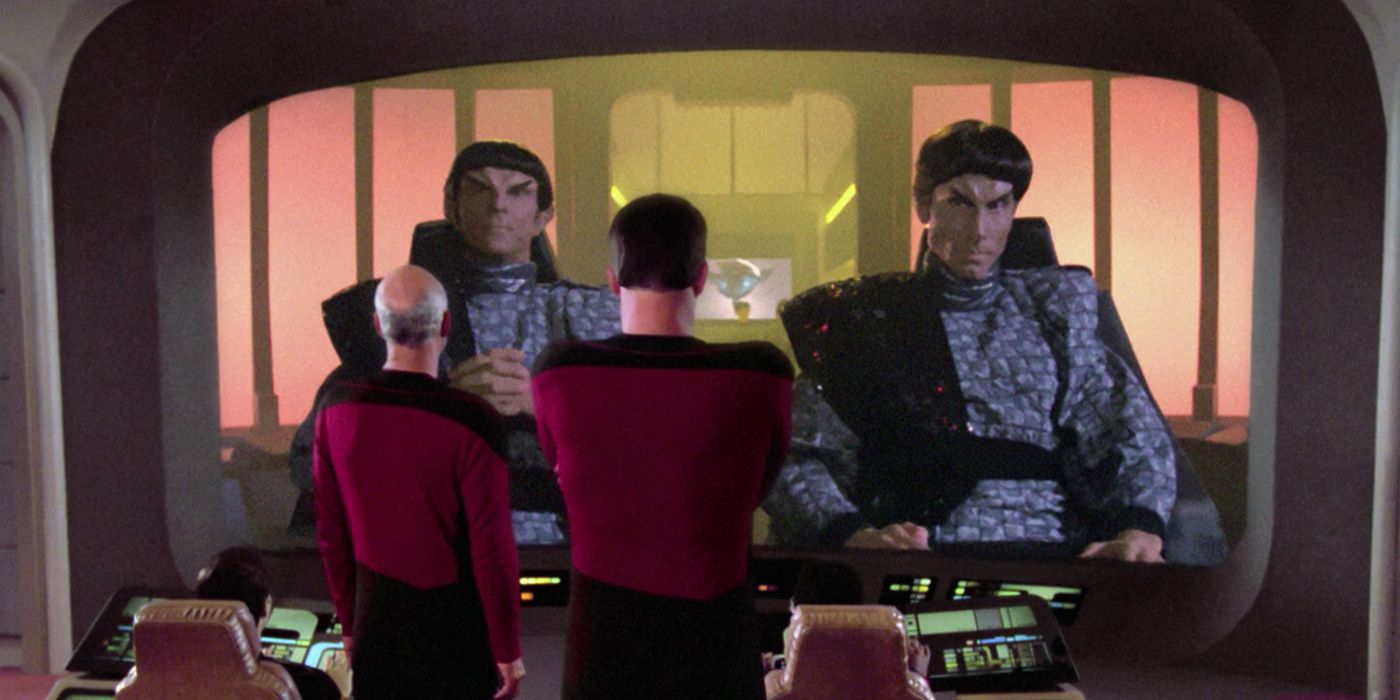The unnamed Star Trek series starring Jean-Luc Picard may have a surprising connection to another iconic character - Spock. The highly anticipated return of Patrick Stewart - one of many new Star Trek series CBS has in development, along with the third season of Star Trek: Discovery - to the franchise that made him a household name is just now beginning production, and we still know next to nothing about the show's plot, other than it will take place about 20 years after Picard's last onscreen appearance in Star Trek: Nemesis, and that Picard will be a much-changed man with a new supporting cast. We also know the dissolution of the Romulan Empire will play a central role in the show's story.
The bit about the Romulans - shared by series co-creator and current Star Trek overlord Alex Kurtzman - is intriguing for several reasons. The most obvious is that this is the first confirmation that the events of J.J. Abrams' first 2009 reboot film will be acknowledged in the Prime universe. Those movies take place in an alternate reality - dubbed the Kelvin timeline - which was created when Spock and a Romulan mining ship, the Narada, were pulled through a black hole from the late 24th century back into the early 23rd century. Spock had been attempting to neutralize a supernova that threatened all life in the galaxy, but it destroyed Romulus before he could intervene.
The Picard series will presumably deal with the aftermath of Romulus' destruction and the way that will undoubtedly reshuffle the galactic power dynamics. But why would Jean-Luc Picard play an active role the fate of the remaining Romulan refugees? For the answer, we have to go back to a very special episode of Star Trek: The Next Generation.
The Promise Of Reunification In Star Trek: The Next Generation
Jean-Luc Picard has some surprisingly strong ties to Spock, certainly for the star of Star Trek: The Next Generation, which took place roughly a century after Star Trek: The Original Series. Picard's first onscreen brush with the legendary Vulcan came in TNG season 3 episode "Sarek," where Picard and the crew of the Enterprise-D encountered the titular Vulcan ambassador, who is, of course, Spock's father. Sarek was tasked with one last vital diplomatic mission before his retirement, but it soon became apparent he was not well. It was eventually revealed he was suffering from Bendii Syndrome, a sort of Vulcan dementia that leaves the sufferer prone to emotional outbursts and a lack of self-control. In an effort to temporarily alleviate the symptoms so Sarek could complete his mission, he and Picard shared a mind meld, with Picard taking on Sarek's overwhelming emotional pain for a few hours, and gaining a deep understanding of the man's mind and heart.
Sarek and Picard would not cross paths again until season 5's "Unification," a two-part episode where it was feared Spock - long the Federation's ambassador to Romulus - had defected to the Romulans. Spock, of course, had not defected, but had joined an underground movement on Romulus to reunite the cousin races of the Vulcans and Romulans. Spock and Picard were natural allies, with Spock even complimenting Picard's Vulcan-like demeanor. Picard was tasked with informing Spock that Sarek had died; the pair eventually shared a mind meld, something Sarek and Spock never did, so that Spock could experience the pride and love his father always felt for him.
There were allusions to Spock's underground activities for the rest of TNG's run, though he wouldn't be seen onscreen again until the 2009 film. We never learned if Spock's efforts were successful, though there was some reason for optimism between the Federation and the Romulans by the end of the last Prime universe story, Star Trek: Nemesis.
What Is Ambassador Picard's Mission?
The last time we saw Jean-Luc Picard, he was still captain of the Enterprise-E, with old friends like chief engineer Geordi LaForge and Klingon warrior Worf by his side. But Stewart himself has suggested Picard is likely no longer a Starfleet captain, which would make a certain amount of sense; Picard was one of Starfleet's most decorated officers and was probably nearing an inevitable promotion around the time of Nemesis.
There's no official confirmation of what Picard's next job was, but both canonical and non-canonical stories have suggested he'd eventually become the Federation's ambassador to Vulcan. It's not hard to imagine Ambassadors Picard and Spock working hand in hand to broker peace between the two planets, and how devastated Romulus' destruction would have left Picard, not to mention Spock's "death" - we know Spock actually just got shunted into the Kelvin timeline, but to everyone in the Prime universe it would be apparent that he sacrificed himself saving the galaxy.
This would leave Picard, in the twilight of his life, with one final mission: find a home for his once sworn enemies, who are now intergalactic refugees with few allies or worlds willing to take them in. Spock devoted the majority of his life to the cause, and that may be enough to galvanize Picard and to take matters into his own hands instead of relying on the lukewarm bureaucracy of the Federation.
The Picard Series Will Be An Immigration Story - Explaining Stewart's Return
Picard's personal connection to the cause of the Romulan refugees is apparent, but it may also explain why Patrick Stewart has finally decided to return to the Star Trek franchise. Despite the fact that some creators like to sand off its more challenging edges - something the Abrams films are absolutely guilty of - Star Trek has always been political. Star Trek: The Original Series made its name by telling fantastical morality plays about racism, sexism, and the myriad flaws and strengths of the human condition; the TOS cast's final movie, Star Trek VI: The Undiscovered Country, was a meditation on the end of the Cold War, and how good men and women can harbor hatred in their hearts without even realizing it. It also had Captain Kirk kicking a neon alien in his knee genitals and making out with himself, because William Shatner is who he is.
Stewart's The Next Generation was just as politically motivated, dealing with issues of social justice and civil liberty in more thoughtful ways than the '60s swashbuckling adventurism of The Original Series. When Star Trek is at its best, it has something to say about the world around us through clever, universal themes. One of the many inescapable realities of 2019 is the escalating immigration crises both along the American border with Mexico, and in Europe with Syrian war refugees. Stewart himself is an outspoken critic of the hardline policies that are making it harder for immigrants and refugees to find safe harbor in countries that were ironically built on the backs of generations of immigrants, and it's easy to imagine him finding the notion of the Romulans as a stand-in for those real-world issues to be an opportunity he couldn't turn down. Picard attempting to save the Romulans, perhaps the mostly boring, cartoonishly evil alien race of The Next Generation era who greeted him with nothing but enmity, would be a fitting swan song for the man who may be Star Trek's most empathetic, thoughtful character.
The Picard series doesn't necessarily need all of this backstory. The notion of Patrick Stewart putting on his spacesuit and telling people to "make it so" is likely enough to cause a spike in CBS All Access subscribers when the show debuts. But it's appropriate that such a monumental return would not only tie into the franchise's deepest roots, but would also address real-world strife with the humanity and hopefulness that only Star Trek can deliver, and that message has never had a more effective disciple than Jean-Luc Picard.




